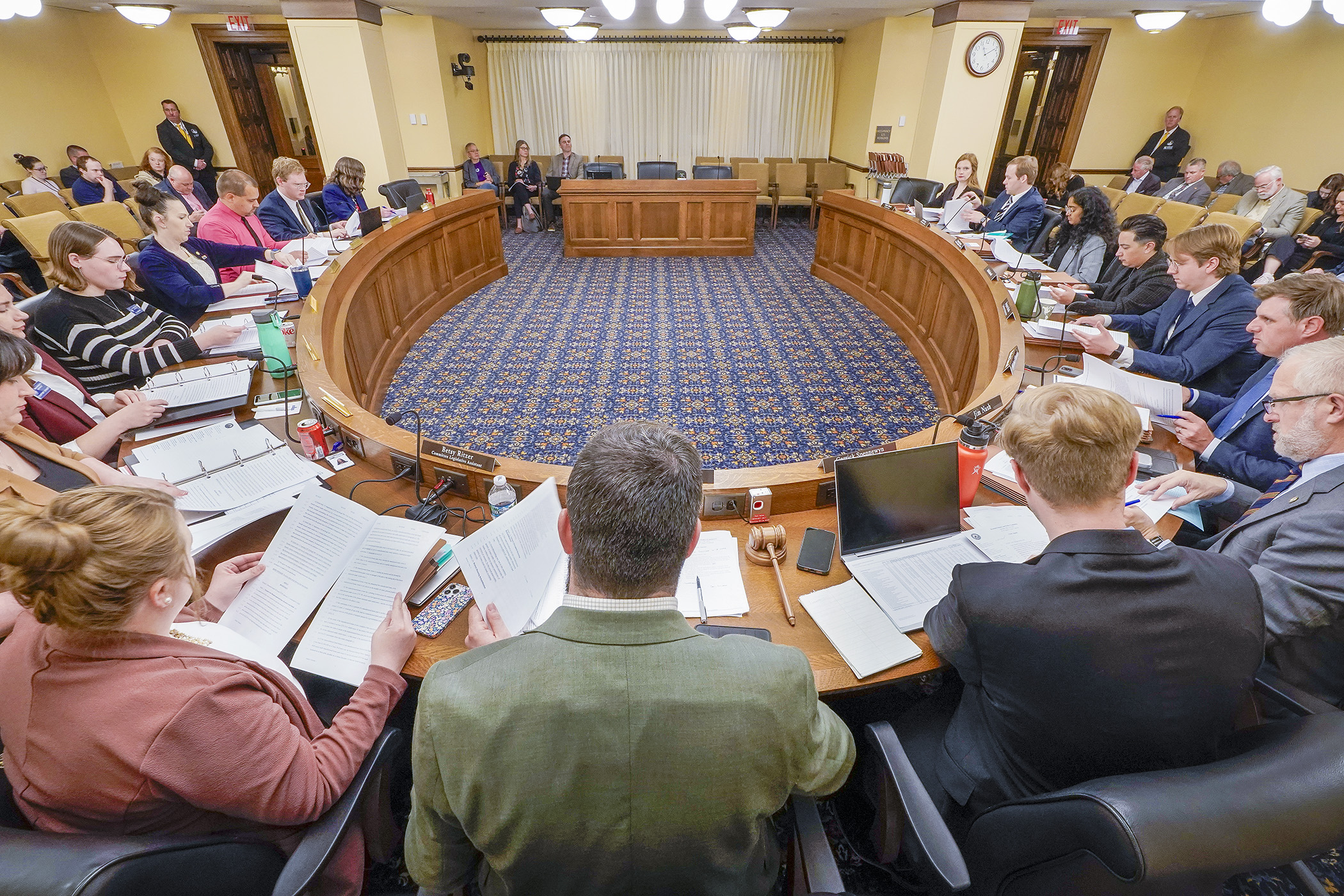Housing bill would boost aid but fall short of demand, supporters say

A bill advancing through the Legislature would increase funding for affordable housing programs, infrastructure grants and rental assistance though some lawmakers argue it falls short of fully addressing the state’s housing needs.
Sponsored by Rep. Spencer Igo (R-Wabana Township) and Sen. Lindsey Port (DFL-Burnsville), HF2445/SF2298* is the omnibus housing and homelessness prevention bill that would include millions in new spending for several programs, not the tens of millions some advocates hoped for.
The Senate passed the conference committee report 36-31 Saturday afternoon. If the House does the same, the bill would then go to the governor’s office.
Adopted by a conference committee early Saturday, the agreement would provide authority to raise $50 million through housing infrastructure bonds. It would also increase General Fund spending to $183.95 million in the 2026-27 biennium, an $18 million increase over base per the global target agreement. Budget targets set by House leaders had a $75 million increase; the Senate target was a $3 million increase.
Rep. Michael Howard (DFL-Richfield) said it is insufficient to meet the scale of Minnesota’s housing needs. Estimates show that $35 billion is needed to build sufficient homes, particularly affordable units.
“It’s a very good bill, but not good enough,” Howard said.
The bill would allocate an additional:
- $8.35 million to the Family Homeless Prevention and Assistance Program, providing emergency rental and utility assistance;
- $2 million to the Economic Development and Housing Challenge Program, supporting affordable rental housing development;
- $2 million to the Workforce Homeownership Program;
- $2 million to the Homeownership Assistance Fund, helping with down payments and closing costs;
- $2 million for Greater Minnesota Housing Infrastructure Grants; and
- $2 million for first-generation homeowner downpayment assistance grants.
Funding to provide manufactured home infrastructure grants and to create a tenants’ rights hotline, originally in the House bill, were excluded from the final conference committee report.
[MORE: See the spreadsheet]
Policy provisions
The bill would provide incentives for communities adopting Yes to Homes initiatives, including allowing multifamily housing in most residential zones and easing requirements on minimum lot and garage sizes. Cities implementing these policies would receive a five-point scoring boost when applying for state grants, with the provision set to sunset in 2029.
Rep. Jim Nash (R-Waconia) appreciates the incentives but stressed the need to cut regulatory red tape. “We’ve had opportunity after opportunity after opportunity, and it’s slipping away.”
Other policy changes would:
- require Minnesota Housing to develop a framework for preserving affordable housing;
- allow proceeds from housing infrastructure bonds to support adaptive reuse projects, such as converting schools into apartments;
- inform manufactured home park operators about available tax credits for selling properties to cooperatives; and
- permit deletion of racial covenants at no cost.
Related Articles
Search Session Daily
Advanced Search OptionsPriority Dailies
Speaker Emerita Melissa Hortman, husband killed in attack
By HPIS Staff House Speaker Emerita Melissa Hortman (DFL-Brooklyn Park) and her husband, Mark, were fatally shot in their home early Saturday morning.
Gov. Tim Walz announced the news dur...
House Speaker Emerita Melissa Hortman (DFL-Brooklyn Park) and her husband, Mark, were fatally shot in their home early Saturday morning.
Gov. Tim Walz announced the news dur...
Lawmakers deliver budget bills to governor's desk in one-day special session
By Mike Cook About that talk of needing all 21 hours left in a legislative day to complete a special session?
House members were more than up to the challenge Monday. Beginning at 10 a.m...
About that talk of needing all 21 hours left in a legislative day to complete a special session?
House members were more than up to the challenge Monday. Beginning at 10 a.m...